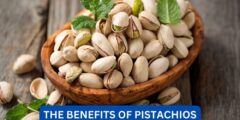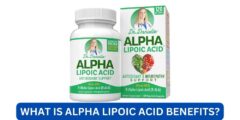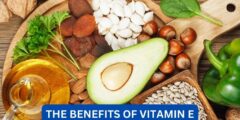Resveratrol is a natural compound found in various plants, including grapes, berries, and peanuts. It has gained significant attention in recent years due to its potential health benefits. From anti-aging properties to heart health, resveratrol has been touted as a wonder compound. But what exactly is resveratrol, and what are its benefits? In this article, we will delve into the science behind resveratrol and explore its potential benefits for human health.
Contents
What is Resveratrol?
Resveratrol is a polyphenol compound that belongs to a class of plant chemicals called phytoalexins. It is produced by plants in response to stress, injury, or fungal infection. Resveratrol is most commonly found in the skin of grapes, which is why red wine is often associated with its benefits. However, it is also present in other plant sources, such as blueberries, cranberries, and peanuts.
Resveratrol gained widespread attention in the 1990s when scientists discovered its presence in red wine and its potential health benefits. Since then, numerous studies have been conducted to understand the effects of resveratrol on the human body.
The Benefits of Resveratrol
Resveratrol has been linked to various health benefits, including anti-aging, heart health, and cancer prevention. Let’s take a closer look at each of these potential benefits.
Read:What are the benefits of chamomile teaAnti-Aging Properties
One of the most talked-about benefits of resveratrol is its anti-aging properties. It is believed that resveratrol activates a gene called SIRT1, which is responsible for regulating the aging process. SIRT1 is known as the “longevity gene” as it has been linked to increased lifespan and improved health in animal studies.
In a study conducted on mice, resveratrol was found to increase their lifespan by 30%. The mice also showed improved motor function and better bone health. While these results are promising, more research is needed to determine the effects of resveratrol on human aging.
Heart Health
Resveratrol has been linked to improved heart health in several studies. It is believed that resveratrol can help reduce inflammation and prevent blood clots, which are two major risk factors for heart disease.
In a study conducted on rats, resveratrol was found to reduce the risk of heart disease by improving blood flow and reducing oxidative stress. Another study found that resveratrol can help lower blood pressure and improve cholesterol levels in patients with type 2 diabetes.
While these studies show promising results, more research is needed to determine the effects of resveratrol on heart health in humans. However, incorporating resveratrol-rich foods into your diet, such as grapes and blueberries, can be a beneficial addition to a heart-healthy lifestyle.
Read:What are the health benefits of pumpkin seeds?Cancer Prevention
Resveratrol has also been studied for its potential role in cancer prevention. It is believed that resveratrol can inhibit the growth of cancer cells and prevent them from spreading to other parts of the body.
In a study conducted on mice, resveratrol was found to suppress the growth of breast cancer cells. Another study found that resveratrol can inhibit the growth of colon cancer cells. While these results are promising, more research is needed to determine the effects of resveratrol on cancer prevention in humans.
Other Potential Benefits of Resveratrol
In addition to the above-mentioned benefits, resveratrol has also been linked to other potential health benefits, including:
- Improved brain function and memory
- Reduced risk of Alzheimer’s disease
- Anti-inflammatory properties
- Improved insulin sensitivity
- Reduced risk of type 2 diabetes
While more research is needed to confirm these benefits, incorporating resveratrol-rich foods into your diet can be a beneficial addition to a healthy lifestyle.
How to Incorporate Resveratrol into Your Diet
Resveratrol is naturally found in various plant sources, making it easy to incorporate into your diet. Some of the best sources of resveratrol include:
Read:How much cilantro to eat for health benefits?- Red grapes and red wine
- Blueberries and cranberries
- Peanuts and peanut butter
- Cocoa and dark chocolate
- Japanese knotweed
While red wine is often associated with the benefits of resveratrol, it is important to consume it in moderation. Too much alcohol can have negative effects on your health, so it is best to stick to one glass of red wine per day.
If you are not a fan of red wine, you can still reap the benefits of resveratrol by incorporating other plant sources into your diet. For example, you can add blueberries to your morning oatmeal or snack on a handful of peanuts for a mid-day boost.
Supplements vs. Natural Sources
With the growing popularity of resveratrol, many supplements have hit the market claiming to provide all the benefits of this compound. However, it is important to note that most of these supplements are not regulated by the FDA, and their effectiveness is not backed by scientific evidence.
While supplements may seem like a convenient way to get your daily dose of resveratrol, it is always best to get it from natural sources. Whole foods contain a variety of other beneficial nutrients that work together to provide maximum health benefits.
Conclusion:
Resveratrol is a natural compound found in various plant sources, including grapes, berries, and peanuts. It has gained significant attention in recent years due to its potential health benefits, including anti-aging properties, improved heart health, and cancer prevention. While more research is needed to confirm these benefits, incorporating resveratrol-rich foods into your diet can be a beneficial addition to a healthy lifestyle. So, go ahead and enjoy a glass of red wine or snack on some blueberries for a boost of resveratrol and other beneficial nutrients.









